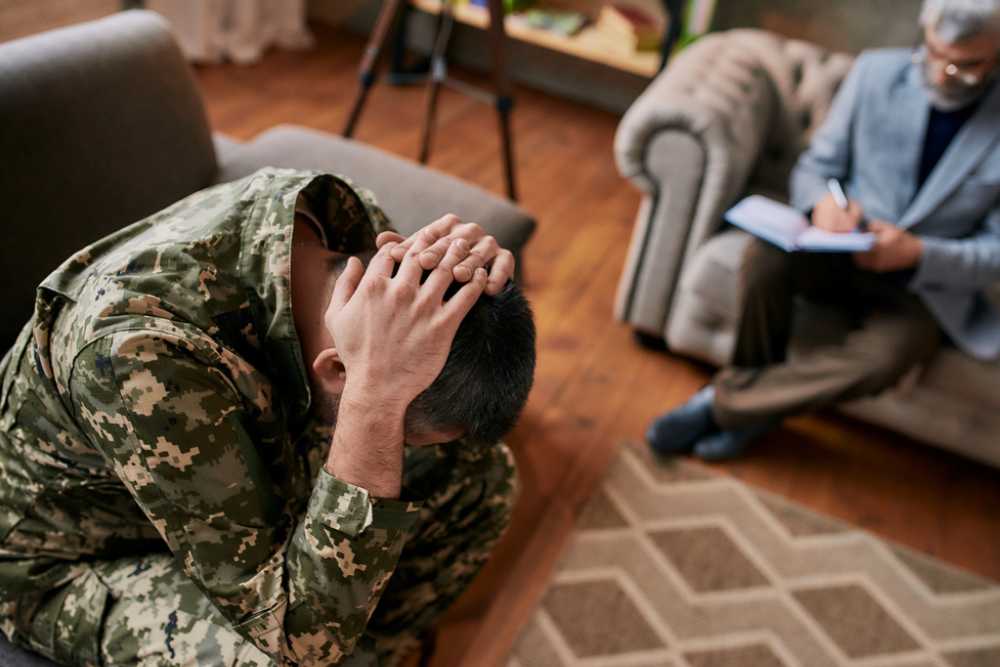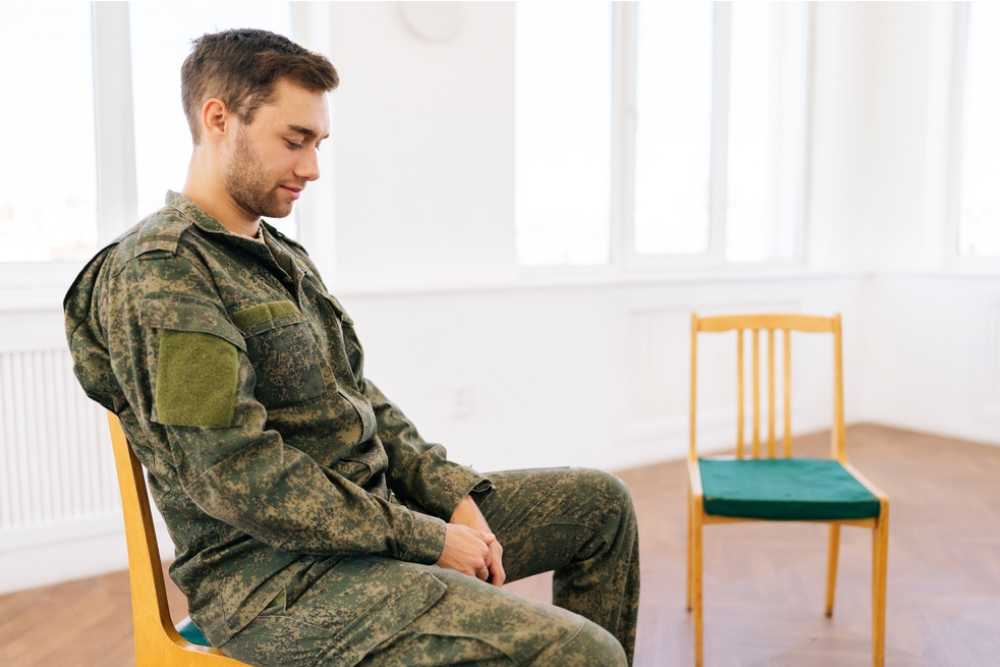Depression is alarmingly prevalent within military populations, with studies indicating rates significantly higher than those found in civilian populations. Service members face unique situations that lead to stress, including combat exposure, deployment-related separation from support systems, hierarchical structures, and the persistent stigma surrounding mental health issues.
According to recent data, approximately 14-16% of active duty personnel experience clinically significant depressive symptoms in any given year, with that number rising to nearly 25% among those who have experienced combat deployments. The issue of depression is particularly concerning as it often co-occurs with PTSD, substance use disorders, and traumatic brain injuries, creating complex clinical diagnoses that can severely impact quality of life.
Seeking professional mental health treatment for Veterans and active military personnel experiencing depression is absolutely crucial. While military culture often emphasizes resilience and self-reliance, these very traits can become barriers to seeking help. Professional mental health centers offer evidence-based treatments specifically tailored to military experiences, including trauma-informed cognitive-behavioral therapy and medication management adapted to the unique demands of service.
Licensed professionals understand the potential career implications of mental health diagnoses and can help navigate treatment in ways that support both recovery and continued service when possible. Early intervention dramatically improves outcomes, reducing suicide risk—a particularly devastating consequence of untreated depression in military populations—and helping valued service members return to full functionality in their military roles and personal lives.

What Are the Common Causes of Depression in the Military?
Military service creates a unique combination of risk factors for depression that often differ from civilian experiences. Combat exposure is perhaps the most significant risk, with repeated exposure to life-threatening situations and witnessing death or injury, all strongly associated with depressive disorders.
The military deployment cycle itself—preparation, separation from family, operational stress, and reintegration—creates recurring psychological strain that can trigger or exacerbate depression. Post-deployment adjustment difficulties, where service members struggle to reconnect with family or adapt to civilian environments during leave periods, frequently manifest as depressive symptoms.
The military’s hierarchical structure and culture contribute additional risk factors. Service members often experience chronic sleep disruption, physical exhaustion, and limited control over their daily lives and future assignments. The ingrained culture of heroism discourages emotional expression, with many service members perceiving mental health concerns as signs of weakness that could damage career prospects or unit standing.
Traumatic brain injuries, disproportionately common in modern military operations due to blast exposures, directly alter brain chemistry in ways that increase depression vulnerability. The disruption of social support networks through frequent relocations and deployments removes crucial protective factors against depression, leaving many service members isolated during periods of vulnerability.
Mental Health Treatment That Works
Call 949-625-0564How Can Depression Affect a Service Member’s Performance?
Depression can profoundly undermine a service member’s operational effectiveness. The cognitive symptoms—including impaired concentration, slowed information processing, and diminished decision-making capacity—directly compromise tasks requiring vigilance, rapid assessment, and tactical judgment. Service members experiencing depression typically report mental fog during critical operations, potentially endangering themselves and their units.
Sleep disturbances, a hallmark of depression, further degrade performance by reducing physical stamina, reaction time, and cognitive sharpness, particularly problematic in high-stress combat environments requiring sustained alertness. The emotional detachment often accompanying depression can severely impair unit cohesion and communication, as affected individuals withdraw from peers and leaders, reducing the trust and interconnectedness essential to military effectiveness.

What Are the Symptoms of Depression in Military Personnel?
The physical manifestations of depression similarly compromise military readiness. Persistent fatigue and reduced energy levels directly impact physical training standards and operational endurance. Psychomotor retardation—the visible slowing of movement and speech—affects combat readiness in time-sensitive situations requiring quick reactions.
Depression frequently coincides with substance misuse as service members attempt to self-medicate, creating additional performance and safety hazards. Perhaps most concerning is depression’s impact on judgment regarding weapons handling and operational risk assessment.
The physical signs of depression similarly compromise military readiness. Persistent fatigue and reduced energy levels directly impact physical training standards and operational endurance. Depression can frequently coincide with substance misuse as service members attempt to self-medicate, creating additional performance and safety hazards. Perhaps most concerning is depression’s impact on judgment regarding weapons handling and operational risk assessment.
What Treatment Options Are Available for Service Members with Depression?
Service members experiencing depression have access to an increasingly comprehensive range of evidence-based treatments through professional, military, and Veterans Affairs healthcare systems. Psychotherapy remains a frontline intervention, with cognitive-behavioral therapy (CBT) specifically adapted for depression treatment for military service members showing strong efficacy.
The Department of Defense has established specialized programs like embedded behavioral health units that place mental health professionals directly within military units, reducing stigma and improving access to care. For service members with co-occurring PTSD or anxiety, medications addressing multiple conditions simultaneously may be prescribed.
Beyond traditional clinical approaches, military treatment facilities increasingly offer complementary interventions, including mindfulness-based stress reduction programs modified for military culture, outdoor and adventure therapy leveraging familiar physical challenges in non-combat contexts, and peer support programs utilizing trained veterans who understand military experiences firsthand.
The Military Crisis Line provides 24/7 emergency support, while digital health applications designed specifically for service members offer between-session support and skills practice. With proper command support and medical coordination, most service members can receive effective depression treatment while maintaining their military careers and operational readiness.
How to Manage Military and Depression With Support From Moment of Clarity
Professional mental health treatment centers specializing in military service, like Moment of Clarity, offer uniquely tailored approaches that address clinical depression and the specific challenges of military service. These specialized facilities understand the distinct stressors service members face—from deployment cycles to command structure pressures—and design treatment protocols that acknowledge these realities rather than working against them.
At Moment of Clarity, we employ clinicians with military cultural competence who recognize that conventional depression treatment must be adapted to accommodate operational security concerns, military occupational requirements, and career implications of seeking help. This specialized care typically begins with a comprehensive assessment that considers combat history, traumatic brain injury screening, and evaluation for co-occurring conditions common in military populations.
Our treatment plans then integrate evidence-based interventions like trauma-focused cognitive behavioral therapy with practical strategies for managing depression symptoms within the constraints of military duties and hierarchies. We also provide critical education to family members about military-specific depression symptoms and recovery processes, strengthening the home support system essential for long-term wellness.
Perhaps most importantly, our outpatient mental health treatment centers in Southern California work to counter the persistent stigma surrounding mental health treatment in military culture by demonstrating that most service members and Veterans who receive professional depression treatment can return to normal lives.
To learn about the importance of seeking mental health treatment help, call Moment of Clarity at 949-625-0564 now.
External Sources
- National Library of Medicine – Veteran and Military Mental Health Issues
- Medical News Today – What to know about depression in the military & stories from veterans
- Health.mil – Relationships between Self-reported Psychological Conditions and Aggressive Behaviors Among Crew Members




